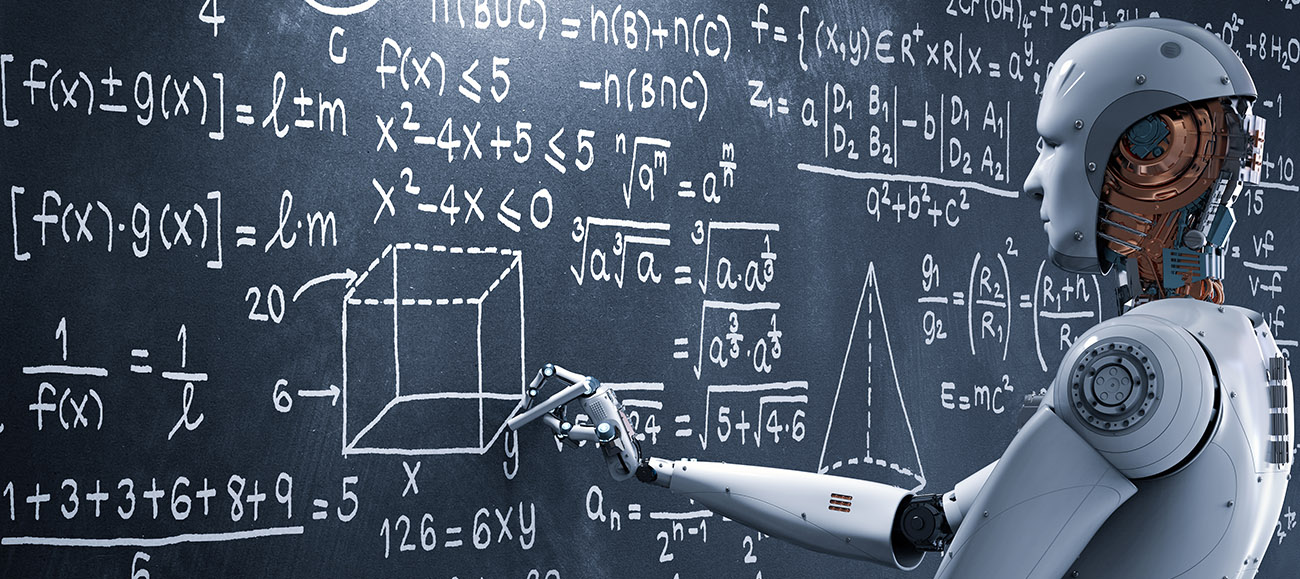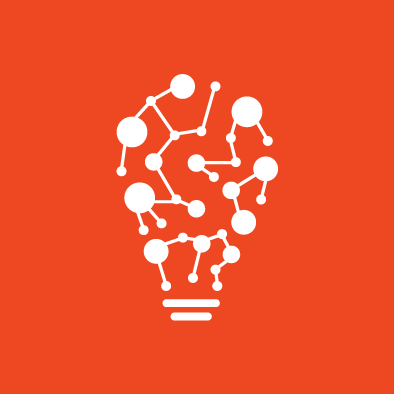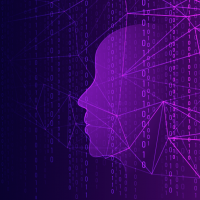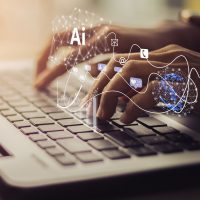
What is the definition of Artificial Intelligence?
Artificial Intelligence is a branch of computer science that simulates human intelligence in machines and makes it possible for a machine or a computer program to perform tasks that require human intelligence. With the help of AI, machines are programmed to understand, think, learn, behave like humans and mimic human behavior. AI allows computers to process large amounts of data and identify patterns in them, gradually learn from their own experience, adapt to the set parameters, and perform human-like tasks, such as learning, decision-making, problem-solving, speech, and language perception.
AI systems are powered by algorithms based on a massive amount of data. These data are received from a wide variety of sources and disciplines, such as computer science, informatics, mathematics, engineering, linguistics, biology, psychology, etc. Through machine learning, AI systems are fed with computer data allowing them to learn and analyze the material instantly and make decisions based on the insights received from these data.
What is the purpose of Artificial Intelligence?
The purpose of AI is to augment human capabilities and improve human performance by helping people make advanced decisions and solve complex problems. Artificial Intelligence is designed by humans with intentionality, intelligence, and adaptability in their algorithms that allow AI systems to self-learn based on real-world experience for the benefit of all humanity.
What are the benefits of Artificial Intelligence?
- Automation of processes
- Reduction of time for performing certain tasks
- 24×7 availability
- Handling repetitive jobs
- Reduction of human error
- Providing higher accuracy and precision
- Improvement in decision making at all business levels
- Optimization of business processes
What are the types of Artificial Intelligence?
Artificial Intelligence is generally classified as narrow or weak AI and general or strong AI.
Narrow or weak AI is a type of Artificial Intelligence in which a learning algorithm is trained to solve one single problem. As defined, it has narrow capabilities and is designed to successfully perform a specific task and advance in that spectrum only. This type of AI is able to come close and even surpass human functioning but only in certain contexts with a limited set of parameters, such as calculations and quantification. Chatbots and conversational assistants, self-driving vehicles, recommendation algorithms are all examples of narrow AI operating within a limited range of functions using predefined rules.
General or strong AI is defined as Artificial Intelligence that would achieve human-level cognitive capabilities and would have consciousness and decision-making skills. We’re still far from building strong AI; however, this would be when machines understand the world as well as human does and carry out a range of complex tasks like any human. Like a child, general AI would go through learning experiences to constantly improve skills over time. General AI is a theoretical concept at this point but has featured in many sci-fi stories, like The Matrix, I-Robot, The Terminator, and others.
What are some examples of Artificial Intelligence technology?
Here are some common examples of Artificial Intelligence applications that improve various aspects of our life.
-
Digital assistants
Digital assistants and smart speakers use Artificial Intelligence to provide relevant and personalized services for users. They convert user’s voice commands into text, answer questions, provide recommendations, make predictions and assist users with performing basic everyday tasks. Google Assistant, Cortana, Siri, and Alexa are popular examples of virtual assistants.
-
Self-driving cars
AI technologies enable self-driving cars that are becoming closer to reality than we’d think. Autonomous cars facilitate many aspects of our life with the potential to make roads safer, reduce car accidents, decrease traffic congestion and emissions, and improve mobility for elderly and disabled people.
-
Machine translations
Artificial Intelligence is used in automatic language translations to translate content from one language into another. Machine translations are a great tool to help language professionals save time by creating the first draft, which they can then edit and improve. Google Translate is perhaps one of the widely used AI-backed translators that makes translations faster, more efficient, and frees up time for people to focus on increasing text quality.
-
Chatbots
AI-enabled online chatbots have become widely available to improve customer support and assist customer care teams. They can handle multiple inquiries in real-time, help customers with common issues, facilitate sales, provide personalized advice and recommendations.
Applications of Artificial Intelligence
Artificial Intelligence has become a driving force for many of the latest technological advancements with its innovative opportunities and smart solutions. The constantly improving capabilities of data analysis, visual recognition, and automation win a competitive advantage for various industries.
-
AI in retail
The retail industry uses big data and predictive analysis to get valuable insights about what customers want and uses the data to create better products and services tailored to their needs. With AI, retailers can optimize customer experiences and drive more revenue with more scalable Artificial Intelligence solutions.
-
AI in healthcare
AI is used to help doctors make faster and more accurate diagnoses and assist in various stages of drug discovery and development. Computer vision and image recognition technologies are used in the healthcare industry to help in microsurgical procedures. Virtual health assistants and chatbots also come in handy to help patients find medical information, schedule appointments, and deal with other administrative processes. AI is also applied as an effective way to predict and identify Covid-19 symptoms.
-
AI in finance
Finance is another sector that greatly relies on AI-enabled solutions to instantly process data and provide relevant financial advice, help customers through virtual assistants, as well as prevent fraud and increase the safety of their premises by applying face recognition technology.
-
AI in manufacturing
AI in manufacturing is used to optimize production processes, automate quality control, predict possible disruptions and downtimes in business processes, detect defects and damages on products and machinery. AI can help manufacturers improve overall operational efficiency, reduce expenses and the probability of human error.
-
AI in construction
Data analysis is becoming a big part of the construction industry, where companies use AI tools for determining materials-based expenses, pricing processes, estimating the best place for a project, and the average time for project completion.
What is the future of Artificial Intelligence?
As you can see, the possibilities for AI seem endless, and every use case of Artificial Intelligence brings different benefits across various industries. With its unique opportunities to the world and more value to its users, Artificial Intelligence will probably increase its presence in our daily lives with the potential to improve the human experience and enhance our world in many ways.
By Siranush Andriasyan

SmartClick is a full-service software provider delivering artificial intelligence & machine learning solutions for businesses.


